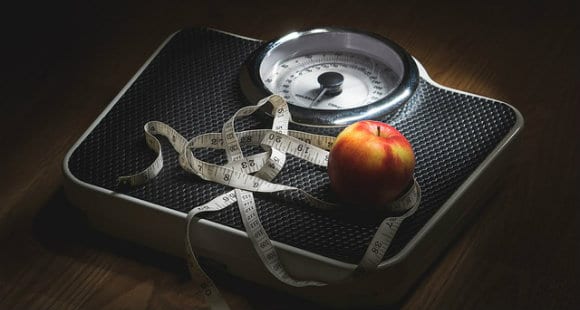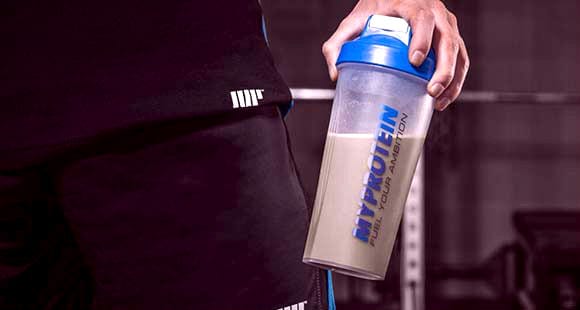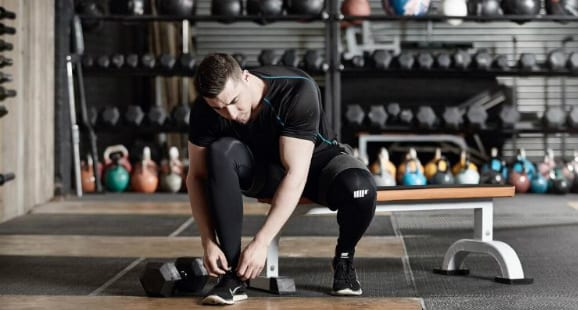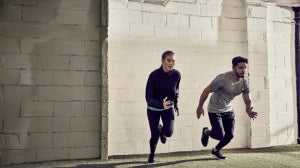
The Holy month of Ramadan is fast approaching and it is a very special time for millions of people. Ramadan provides the opportunity to disconnect from self-isolation, procrastination, and negativity. Instead, it reminds you to be selfless, gives gratitude, connects with all people and synchronizes yourself intimately with your mind, body, and spirit.
With millions looking forward to the struggle, discipline and spiritual strength of fasting, it can be agreed all around that even in personal grief Ramadan is a positive tradition. This positivity is heavily expressed during the breaking of the fast. Family and friends come together, Mothers bring out the best cookware and Aunties share an aged piece of paper containing Grandma’s special recipe to prepare the family favorites that have been served unchanged throughout generations.
It is in all this excitement that many of us forget the meaning of calories, portion control, balanced nutrition and general exercise. As you read this, the urge to put your head in your hands and raise a guilty smile has become strong, because none of us is a stranger to this feeling!

So, why do some people gain weight during Ramadan?
During Ramadan, you are fasting on average 12 hours a day and sometimes longer. Your energy levels become noticeably different, the motivation to move your body beyond what’s required diminishes and the one sensation that remains in perfect tact is the body’s ability to signal hunger. If you are unprepared, this combination becomes a recipe for unexpected weight gain.
A detailed study published in the Nutrition Journal interviewed 173 Saudi families and found that 59.5% of them had reported weight gain after Ramadan. When asked why this was 40% reported a change in diet (more consumption of fats and carbs), over 30% mentioned it was due to a lack of physical exercise during Ramadan and only 14.5% attributed the weight gain to an increase in calories (1).
Although this study was conducted on a tiny fraction of those that partake during Ramadan, we have witnessed post Ramadan weight gain from clients, as well as read numerous testimonies of individuals affected in the same way.
So, let’s look at the above factors in brief detail:

Increased Fats and Carbs
Why increased fats?
Fats are the slowest digesting and most stored macronutrient in the body. They provide more than half of our energy requirements. So, naturally, it makes sense to load up on energy that will be released slowly throughout your fasting time.
How the body uses Fat?
Fat is broken down from food into fatty acids which travel through the bloodstream and are used by cells that require energy. When the excess energy isn’t needed right away, the fats are then converted into triglycerides and stored in fat cells. Note: Fat cells have an unlimited capacity (hence why some people can actually weight up to 400kg+).
Why should you be careful when increasing fat intake when fasting?
The problem with increasing fats is that they are calorie dense and not always so filling! This means that they are easy to overeat. There are 9 calories for every 1 gram of fat and to put things into perspective a tablespoon of oil contains around 120 calories. Now, imagine eating those undeniably delicious fried family favorites without a care in the world - see how quickly the calories rack up?
However, fat doesn’t provide you with instant energy. This is where the increase in carbohydrates come in.
Why increased carbs?
Carbohydrates are the fastest digesting macronutrient. They provide us with the near instant energy that is necessary after multiple hours of fasting – also a contributing factor (aside from religious reasons) as to why dates are the best source of food to break your fast.
How the body uses carbs?
Unlike fats, carbohydrates can only be stored in limited quantities. They are broken down into glucose and readily absorbed by the wall of the small intestines. The glucose then makes its way to the liver, where it is then transported to the bloodstream via insulin and used by blood cells. However, if there is any excess glucose left over it will return to the liver and if the reserves in the liver are full, it will be converted into fat, where it can be easily stored.

Why you should be careful when increasing carbohydrate intake when fasting?
At any given time, the body is either in a fat storage state or a fat burning state. Whenever we eat, the body releases Insulin.
Insulin transports the glucose from our bloodstream and stores it in our body tissue and cells to be used as energy. The problem with increasing your carbs over a short period of time is that you produce large amounts of glucose. The more glucose you have, the more insulin you release. The more insulin you release, the longer your body stays in a fat storage state and the less effective insulin becomes.
Now, if you combine all of the above with limited movement or exercise, you will eventually be left with unused energy. As mentioned above, excess energy will be converted and locked away into your fat cells.
So, how do you avoid the weight gain?
Limit or cut your fried/fatty food intake and opt for healthy fats
Cut out the deep-fried foods and opt for baked or grilled instead. Fried foods contain hydrogenated oils/fats (due to the heating process). Fully hydrogenated oils turn into saturated fat.
Opt for healthy fats such as olives, olive oil, avocado, nuts and one of my all-time favorites coconut oil. These are poly- and mono-unsaturated fats, which host a multitude of benefits including; anti-inflammatory responses, the promotion of lipolysis (fat burning), thyroid support and improved metabolism.
Reduce or cut refined carbohydrates and eat low to medium GI carbohydrates
When fasting you do not want to cut your carbohydrates dramatically as this can lead to low blood pressure, low blood glucose, fatigue, weakness, and headaches. Instead focus on cutting the refined carbohydrates as they cause large insulin and energy spikes that are short-lived, leaving you feeling more tired and needing another hit of instant energy.
Consume slow digesting starchy carbohydrates such as whole grains, brown pasta, brown rice and sweet potatoes. These will keep you feeling fuller for longer and deliver you with a slow release of energy from Suhoor through to Iftar. In addition, eat whole fruits instead of juices as this will control insulin spikes and help with digestion.
Consume protein and consider taking a protein shake

To ensure you are able to maintain a stable weight or even benefit from weight loss during fasting, it is important to ensure you are obtaining a good balance of all your macronutrients. Protein is no exception!
During fasting, you are more prone to a slowed metabolism as well as muscle tissue breakdown. To prevent this, we recommend consuming protein where possible within the fast. We recommend consuming 0.8-1g of protein for every 1lb of body weight.
To help you achieve this without the hassle you should include protein shakes. It is important for me to note here that not all protein is the same. We recommend taking two types of protein shake when fasting.
Casein Protein
Casein Protein is the slowest digesting protein with some powders taking as long as 8 hours to fully assimilate into the body. This makes casein ideal for consumption in the evening preferably before sleep or 30-60mins before Iftar ends. The benefits of casein are:
Increased Muscle retention and quicker muscle recovery due to the slow release of amino acids.
Reduced after-meal triglyceride levels by up to 22% according to research (2).
Increased Fat Loss and faster metabolism
The milk peptides found in casein contain antioxidant properties that may help in the reduction of free radicals
Whey Protein
We suggest consuming a fast digesting protein that contains Branch Chain Amino Acids (BCAA’s) both at Suhoor and at the beginning of Iftar. Whey is fast digesting and for those with an intolerance or vegan preference we suggest opting for a hydrolyzed vegan protein.
The benefits of Whey are:
Fast absorption – this is critical for feeding your muscles after being in a fasted state for over 12 hours.
Increases anabolic hormones that stimulate muscle growth
Whey is a complete protein that contains all of the amino acids
Leucine is one of the most anabolic muscle building amino acids found in whey
The cysteine found in whey can help boost the body’s natural antioxidant levels
Exercise is a must

There is a big misconception that exercising whilst fasting is bad for you and can lead to muscle loss as well as health complications. The truth is exercising incorrectly as well as an absence of exercise can lead to those misfortunes.
While fasting you may need an additional ounce of motivation, but if done correctly fasted exercise can see you hit your fitness goals quicker and easier! I will detail how to exercise during Ramadan in another article, but for now, I will address the basics.
Ramadan Exercise Basics
Stick to low to moderate intensity workouts that last between 30-60mins after Suhoor and before Iftar. As you already know exercise requires energy and once that energy has been spent it will need to be replaced fairly soon. In addition, the reason it is important to keep the workout short and of moderate intensity during these times is that during the fast you are extremely prone to dehydration. This can lead to water retention, headaches, fatigue, dizziness and only in extreme cases cardiovascular failure.
Examples of low to moderate intensity exercises include; Steady-state flat and incline walking, interval slow jogging, cycling and light weight/resistance training.
If you are keen on performing high-intensity training then it should be limited to 20-45mins. The best time to workout will be after Iftar as you can have a light pre-workout meal and finish in time for a post-workout meal.

Bottom Line
Energy in = Energy out. Fast or no fast the rules still apply. To lose weight you need to expend more calories than you take in. Managing this during Ramadan becomes an easy process when prepared. This means keep your meals clean and healthy where possible, keep protein intake in check (supplement with a shake), hydrate with water properly and be realistic with your fitness goals and expectations. Attempting to take advantage of your fast by restricting your calories further and exercising harder is a recipe for disaster and potentially very dangerous.
It is also very important to remind you that Ramadan is a special and spiritual time. Your fitness goals may be a priority but achieving them safely should come first. Your change starts with the right mindset, respect, and connection to your being as a whole. Take your time and be consistent, the results will surely follow.
- Bakhotmah, A B (2011). The puzzle of self-reported weight gain in a month of fasting (Ramadan) among a cohort of Saudi families in Jeddah, Western Saudi Arabia. Nutrition Journal, [Online] Volume 10 (1), p.1 DOI: https://doi.org/10.1186/1475-2891-10-84
- Mariotti M. et al (2015). Casein Compared with Whey Proteins Affects the Organization of Dietary Fat during Digestion and Attenuates the Postprandial Triglyceride Response to a Mixed High-Fat Meal in Healthy, Overweight Men. The Journal of Nutrition, [Online] Volume 145 (12) p.2567-2664 DOI: https://doi.org/10.3945/jn.115.216812









